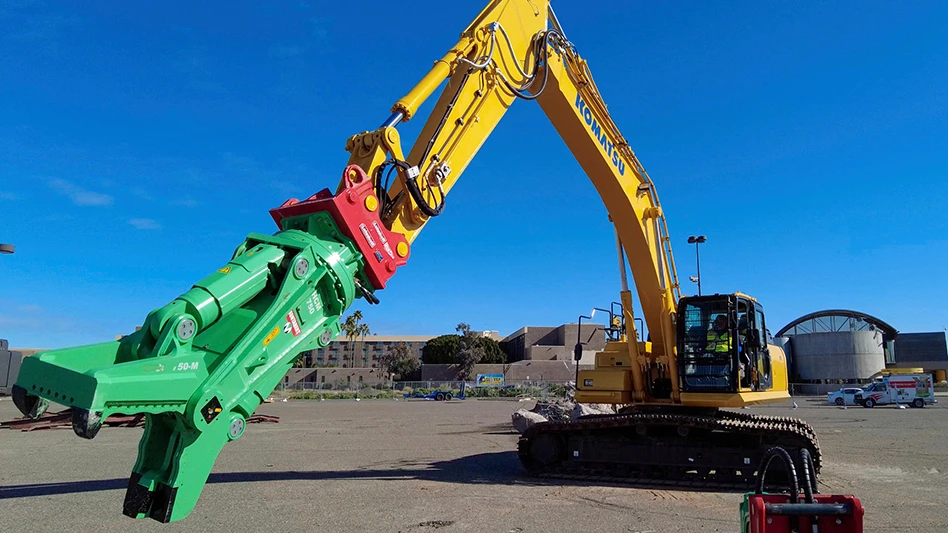
I’ve spent just about a full month as the new managing editor for Construction & Demolition Recycling (C&DR) magazine and its sister publication Waste Today. I’m still learning all the ins and outs of the construction and demolition (C&D) recycling industry, but one thing that’s been apparent to me in the short time I’ve been interviewing owners of C&D recycling businesses is that those who get into this sector do so for a reason—and that reason often is a passion for sustainability.
For instance, for this month’s cover story on Falcon Green Resources, an asphalt shingle recycling company in McHenry County, Illinois, owner Kathy Powles was excited to tell me about how she’d stopped mowing the grass outside the company’s facilities. In place of perfectly manicured lawns, she’s allowed flower gardens to grow.
The decision, she explains, stems from her background and passion for nature, and that passion makes up a big part of the Falcon Green business philosophy. “Now we’re not wasting the gas mowing,” Powles says. “We’re embracing the natural flowers instead of spraying.”
Those flower gardens got me thinking about all the ways a company can be sustainable.
Running a sustainable business can look like using energy-saving technology, working toward zero waste or setting goals around your carbon footprint. But it also can look like hiring the right people (and taking care of them), putting into place a long-term growth plan and being willing to adapt and adjust your business model.
In editing stories for this issue, I learned about how Total Wrecking & Environmental, a New York-based demolition firm, outfitted crew members in full personal protective equipment and respirators throughout the demolition process at an Apple Grove, West Virginia, plastics manufacturing plant. The company also conducted extensive, daily monitoring of its team members for asbestos and PCB (polychlorinated biphenyl) exposure.
I also learned about how, for downstream markets, Fort Myers, Florida-based Southwest Waste Systems partners with existing outlets—for wood, metal or concrete—to support the local business community. However, if a local outlet doesn’t exist, the company will adapt and build its own downstream systems for those recyclables.
And, indeed, at Falcon Green, its sustainability philosophy stretches beyond a no-mow policy to ensure a sustainable workforce by emphasizing keeping employees happy. As Powles explains it, for her, a big part of running a successful business is showing up every day for her employees and keeping them happy, healthy and safe.

I’m very excited to be starting the new year as part of the phenomenal C&DR team, and I’m looking forward to calling upon my background in newspaper and magazine journalism as I continue to become immersed in the industry.

Explore the January/February 2024 Issue
Check out more from this issue and find your next story to read.
Latest from Construction & Demolition Recycling
- Cielo investor requests annual meeting
- CDE sets up washing plant on Long Island, NY
- NWRA: NIOSH cuts a step in the wrong direction
- Ferrous price hikes could be poised to pause
- Northstar secures 15-year lease extension for asphalt shingle recycling facility
- Greenwave asks for SEC filing extension
- Construction Plastics Initiative lines up projects
- ShearCore adds dealership group in Canada





